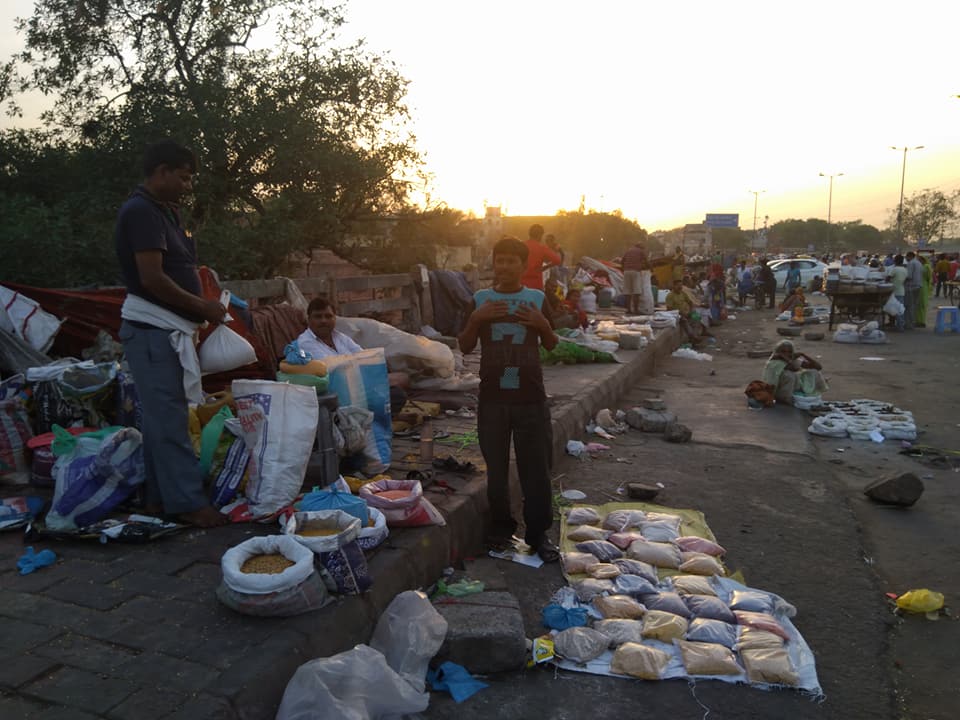A street vendor is broadly defined as a person who offers goods or services for sale to the public without having a permanent built up structure but with a temporary static structure or mobile stall (or headload). Street vendors may be stationary by occupying space on the pavements or other public/private areas, or may be mobile in the sense that they move from place to place carrying their wares on push carts or in cycles or baskets on their heads, or may sell their wares in moving bus etc. (National Policy For Urban Street Vendors)
The two word, Street vendors and hawkers have been used synonymously but they are different in the sense that street vendors is involved in street trade and keeps on moving from one place to other while the other indulge in street trade by occupying some space for temporary shelter. In the National Policy for Urban Street vendors the term Urban Street Vendors includes both the stationary as well as mobile vendors.
The constitution of India protects the rights of the street vendors just like any citizen of the country. Article 14 talks about equality before law and most importantly the Article 19(1)(g) guarantees to every citizen the right to practice any profession which grants the street vendors, like any citizen, their right to carry the business or trade of their choice.
The Article 21 that talks about the protection of Life and personal Liberty also includes the protection of the livelihood of individuals.
Several laws and policies have been implemented by individuals states. The Street Vendors (protection of Livelihood and Regulation of street vending) Act, 2014 has been passed with the aims at protecting the livelihoods of street vendors and regulating their activities by demarcating the vending zones and has put up conditions and restrictions on Street Vending.
Town Vending Committees are a major highlight of the act. These town vending committees are to be formulated in each local authority, zone or ward. Representation of members from different communities is mandatory in TVC.The issue and renewal of the registration and vending certificate is one of the major task of the TVCs. Only the people who have the registration certificate can perform the vending activities in the particular area. The scheme shall be formulated by the state government. A street vending plan will be formulated once in five years by the local authorities, in consultation with the planning authority.
The law mandates that a survey should be first conducted. The certificates can only be issued after that. It states that no hawkers can be removed from their place of work until and unless this survey is completed. It makes it compulsory that eviction or displacement of the hawkers from their place of work should only be the last resort. Even if it is necessary to evict the vendors from a particular place, there lies a provision of their rehabilitation to an alternative place.
Link to the Street Vendors (Protection of Livelihood and Regulation of Vending) Act, 2014:
http://mohua.gov.in/cms/TheStreetVendorsAct2014.php
